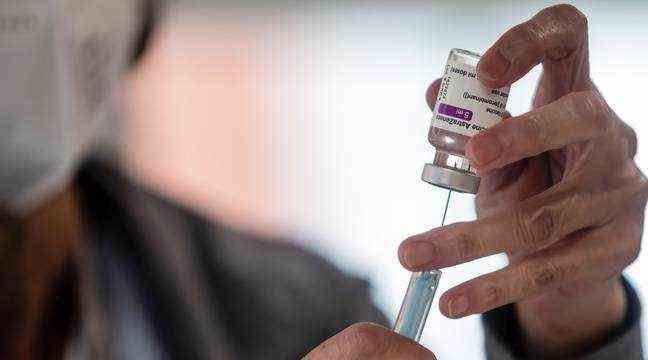A nurse injects AstraZeneca’s vaccine against Covid-19. – SOPA Images / SIPA
Here are the latest figures for complications from AstraZeneca’s vaccine. Five new cases of atypical thrombosis (clots), associated with AstraZeneca’s Covid-19 vaccine, were recorded in France between April 9 and April 15, but none caused new deaths, according to health authorities.
While this vaccine has been reserved since March 19 for people aged 55 and over, due to this adverse effect, these 5 new cases of these atypical thromboses have occurred in patients with an average age of 63 years, according to the weekly follow-up report from the French Medicines Agency (ANSM).
Since the start of vaccination, out of 3.2 million injections performed with AstraZeneca, the results are now 27 cases of thrombosis, including 8 deaths. This therefore makes one death for 400,000 injections, figures much lower than the risk of thrombosis when taking a plane, Olivier Véran recalled Thursday.
As many men as women
“The typology of reported cases remains identical to that of the last assessment, with a higher average age (median at 60 years), a sex ratio close to 1 (13 women / 14 men) and a location of the thromboses mainly in the digestive level over the period, ”said the ANSM.
Due to the rare cases of thrombosis spotted in Europe and France, since March 19, the AstraZeneca vaccine is no longer administered to those under 55 years of age. For this category of people who have already received a dose of this vaccine, the High Authority for Health has recommended a second dose with Pfizer or Moderna.
A scientific committee dedicated to rare and atypical thromboses observed after vaccinations against Covid-19 was set up this week by the ANSM to help clarify the mechanisms. This committee of specialists (infectious diseases, virologists, immunologists, epidemiologists, etc.), which also includes a representative of patient associations, will cover all the vaccines used against Covid-19.

